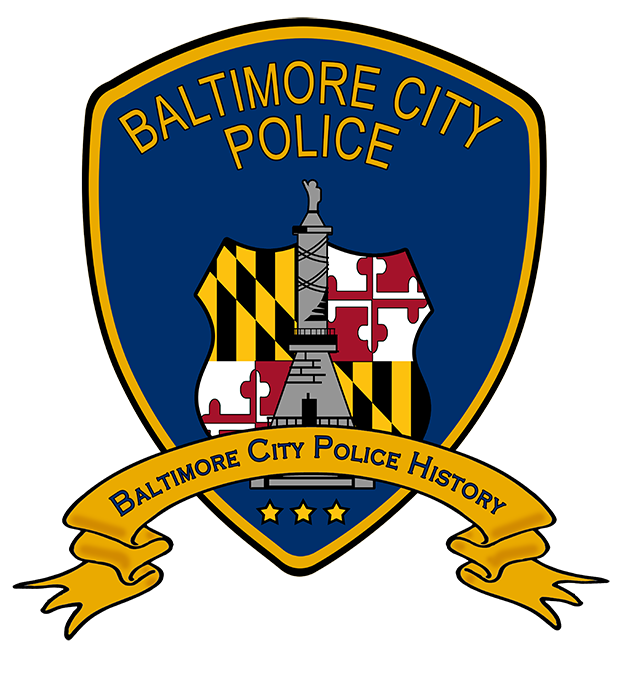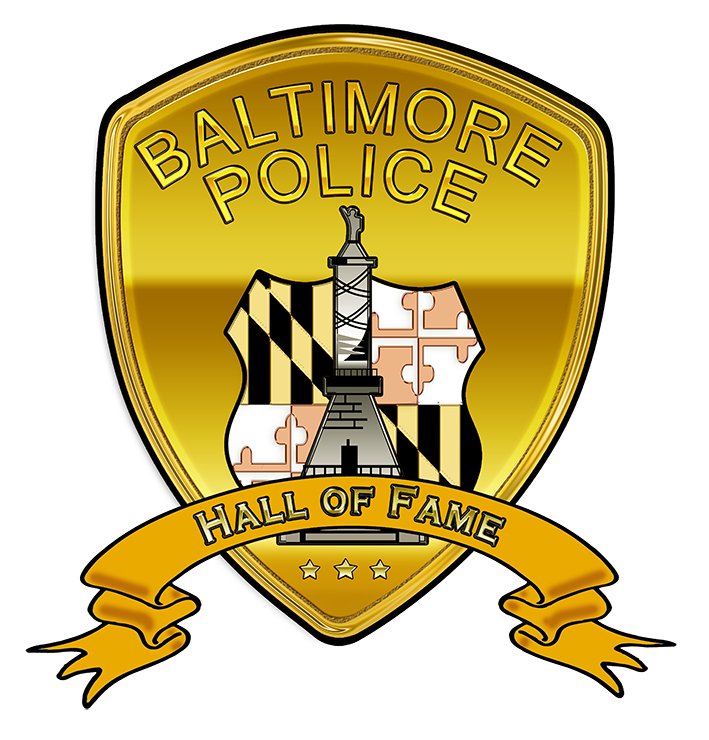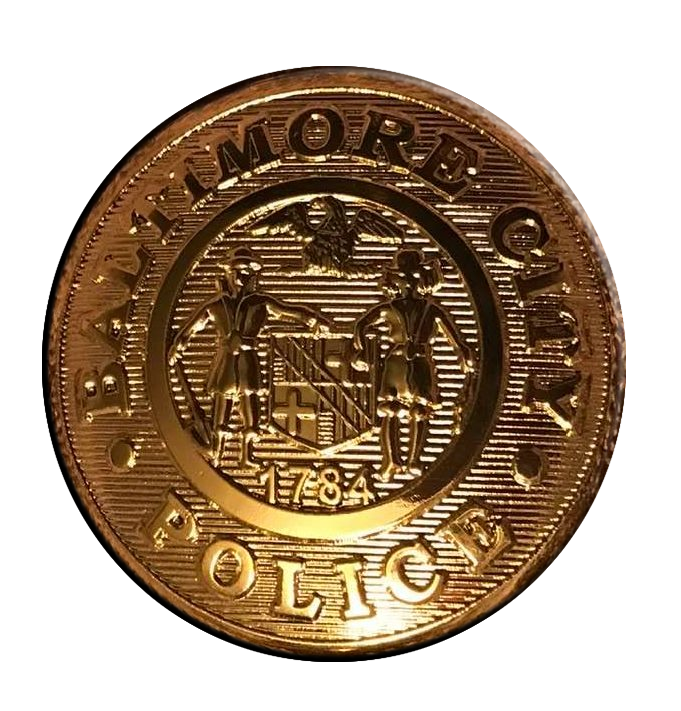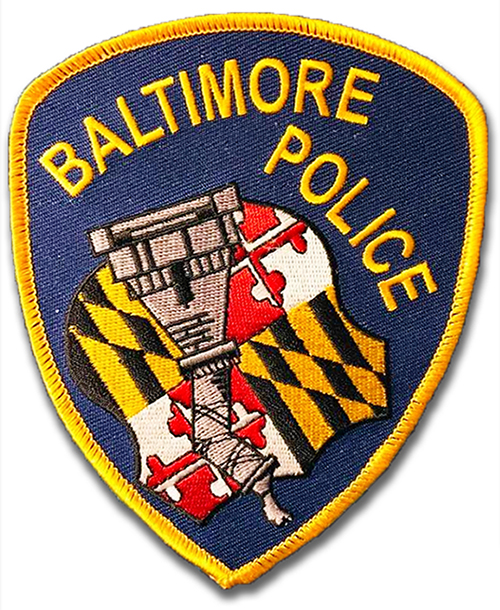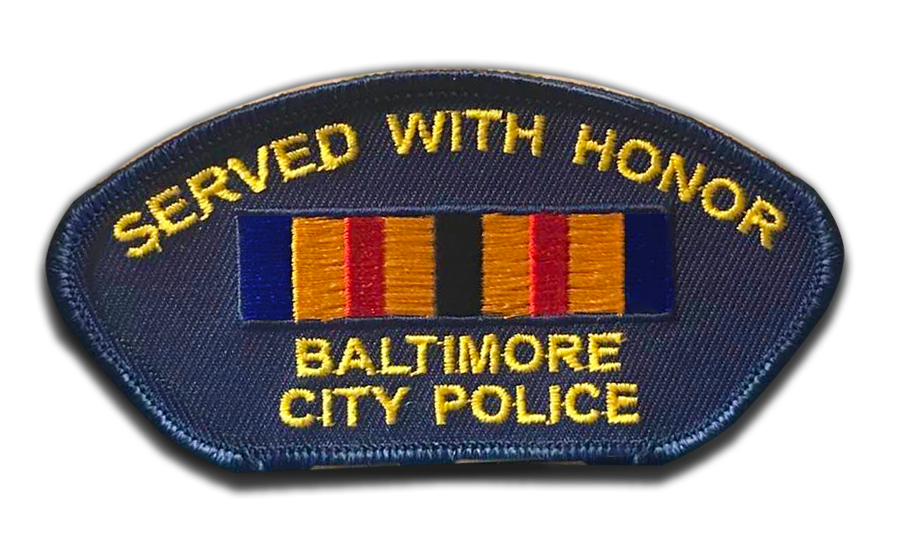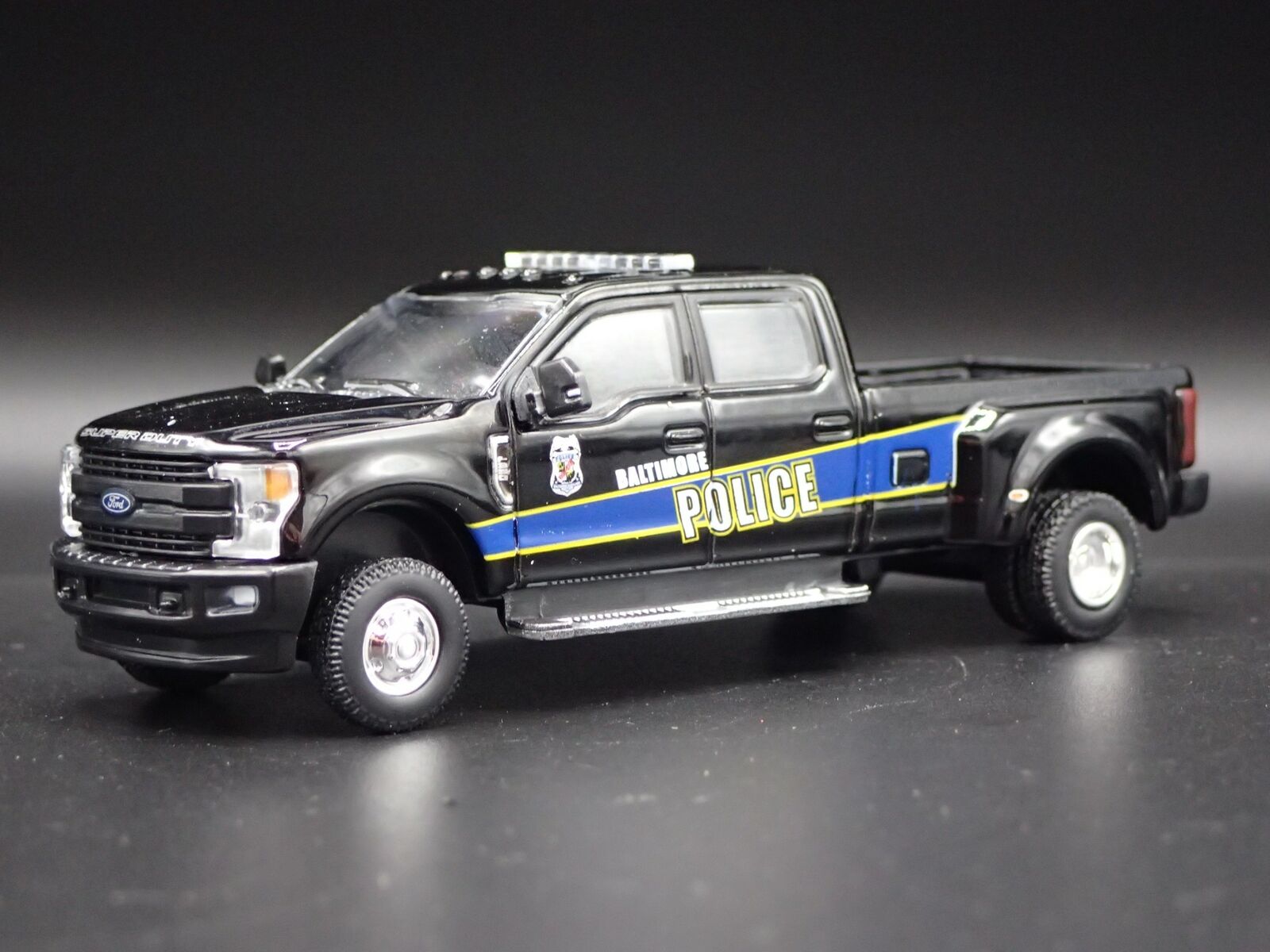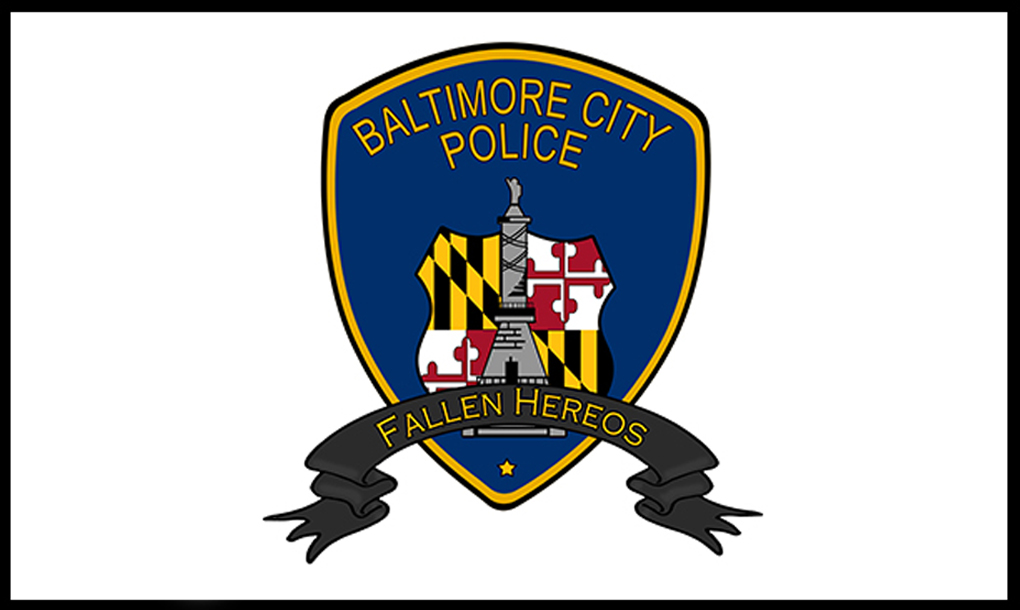
Marty Ward and the Drug War
CLICK HERE FOR AUDIO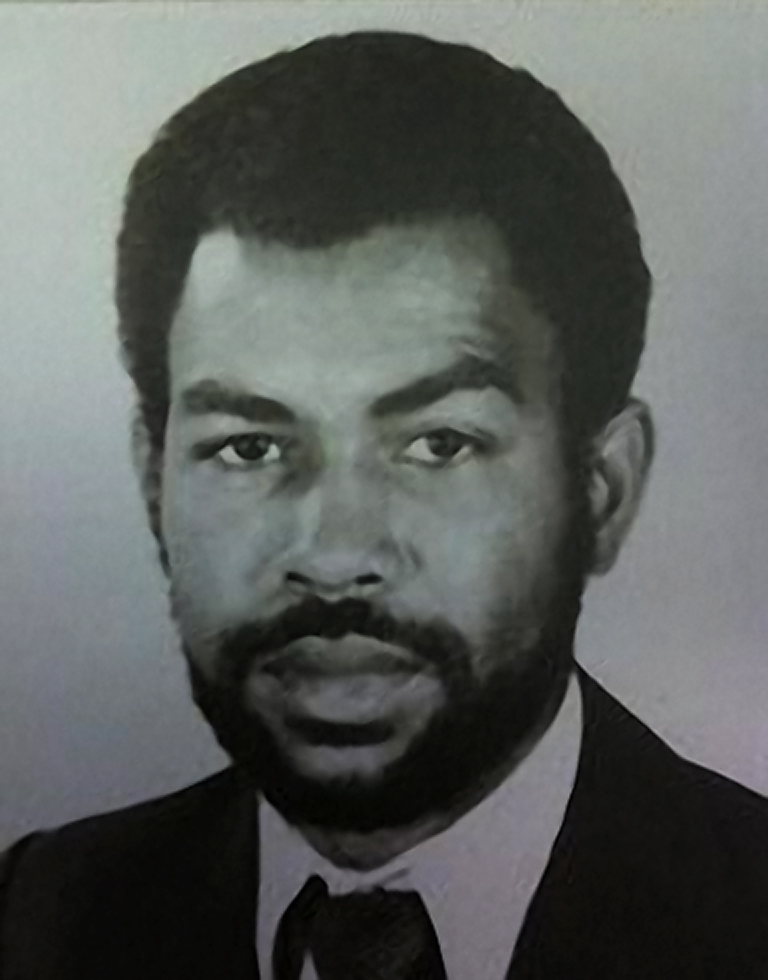
4 December 2009
Thursday's ceremony for slain Baltimore Police Det. Marty Ward, who was killed making an undercover drug buy 25 years ago, got me thinking a lot about drugs and the way we fight the drug war.
Marty was a seasoned cop when, as part of U.S. Drug Enforcement Administration task force, he negotiated a heroin buy from a man and then got shot as his raid team ran up the stairs. Ward's dying gasps were caught on tape that was played at his trial.
At the ceremony outside the house in which Marty had been shot, 1829 Frederick Avenue, cops gathered and talked about continuing the drug war and "standing the line" but it was clear that 25 years of seemingly futile work has made little headway. Above, in a picture by The Sun's Lloyd Fox, Officer Efren Edwards salutes).
The best that could be said came from Gary Childs, who was the lead cop on the raid team when Marty was shot. Standing back at the house a quarter-century later, Childs told me: "Imagine what it would be like if we didn't do what we did. We try to put a lid on it and make it OK for the people who have to live here."
In other words, we're barely keeping pace. We're struggling to maintain the status-quo. As as several police officers told me on Thursday, the amount of heroin Marty was negotiating for in such an elaborate and dangerous sting is roughly the same amount cops today get in standard street rips.
"Baltimore will never change," one city police lieutenant told me.
It's not that all this for nothing. But it's got to be disheartening for police officers to return to a street where one of their own had been killed so long ago and find it no better or even worse than it was back then. Those who knew him described Marty Ward (left) as a cop with unquestioned integrity, who truly gave up his life for others.
After completing the drug deal and getting the incriminating words on tape, he could've walked down the stairs from the apartment above the Kandy Kitchen and let the raid team go up. But he knew the suspect, Lascell Simmons, had a .357 Magnum, and so Marty decided to stay to try and distract him as his fellow cops ran up two flights of stairs in the cramped row house. Simmons heard them coming and shot Marty four times before they could arrive.
It was Childs, listening to the live audio feed, who heard Simmons' gun cocking, then a shot, then the gun cocking again, then another shot. Childs could be heard screaming "Marty, Marty Marty!" before he cut the feed. It was Childs, who would later become a city homicide detective and now works for Baltimore County police, who ran up the narrow stairs and shouted to Simmons to throw down his gun. Simmons refused, saying he didn't believe Childs was a cop.
"I ain't throwing no gun down till the police come," Simmons said, according to a 1985 Baltimore Sun story. "Don't come up here, man. I'm telling you wait unitl the police come, man. I can't let y'all up here because I don't know who y'all is, man."
Childs screamed up: I am the ---- police, here's my badge. Now throw the gun down and walk down and if that man dies, I'll kill you."
Simmons died in prison in April while serving a 160 year sentence for Marty's death.
Haunting words from so long ago. My colleague Dan Rodricks -- he has a blog called Random Rodricks -- wrote a moving column in 1985 that, without the names and date, could be written today. He wrote that on Dec. 3, 1984, about 5 p.m., most people were sitting down to dinner or watching TV, and "with no one paying much attention, a police officer named Marty Ward was trying as best one man could to save the city. He was trying to stop the seepage of heroin into the blood of Baltimore."
The seepage continues, not because Marty failed, but for many other reasons that could be and are debated in books, in university classrooms and in squad rooms across the country. A few months ago, Baltimore Police Commissioner Frederick H. Bielefeld III addressed officers in a training seminar and criticized past administrations for failing to effectively combat drugs.
He said that after Marty Ward was killed, cops reserved undercover drug buys for the most serious of cases and the most wanted of men. That way, when a detective brought a suspect to a judge, even for a small amount of drugs, the judge knew that this man was a high-level target because otherwise police wouldn't have risked their lives to bring him in. In short, the bust meant something.
But Bielefeld said that past Baltimore police commissioners decided they could buy drugs from everyone and put everyone in jail. Judges came to work with addicts lined up around the corners and concluded, rightly, that the cops had no real plan other than mass arrests. Their dockets were overloaded with petty criminals while the big-time suppliers roamed free. Prosecutors set an arbitrary limit to stem the tide, requiring 30 pieces of crack or small bags of heroin to bring a felony charge. The dealers started carrying 29.
Bielefeld said he's trying to turn that around. Here is some of what he told the cops in training, according to Sun reporter Justin Fenton who was allowed to attend:
"We reserved undercover buys, hand to hand buys, after that, after that death, we reserved undercover buys for the biggest targets we could think of. Guys’ we couldn’t get any other way. So we didn’t do it a lot. Not cause we were afraid, not just because of Marty Ward. But we said to each other, 'If we’re going to do this, it’s a big deal. It’s a really big deal. And the people we get, are a really big deal.'
"Who else knew that? The judges knew that. And all this crap about 30 pieces, all that other junk we’ve lived with, it still meant something to sell dope to a cop. It meant something. We put you in plainclothes, we send you out. It wasn’t TV stuff. ... If we gave you twenty bucks of marked money and bought two pills and we went and locked that guy up, it meant something. It was a very clear signal that we were serious about that guy. Cause most of the judges knew about Marty Ward too. They knew about our history and about our policing tactics, of this agency. It meant something."
Bielefeld then referenced (and sharply criticized) former Police Commissioner Kevin P. Clark:
"Anyone know what Clarks’ strategy to solve drug dealing in Baltimore was? His core strategy was, that he believed we could buy dope from all the drug dealers and put them out of business. It's preposterous, right? Why do we know that? Cause you wear this uniform and patrol these streets. It would be like you tomorrow, you’re the police chief of Albuquerque, New Mexico, and on the plane ride out, you’re writing down all this stuff about how to solve crime in Alburquerque, New Mexico. Could she do it? no. hell no.
"He had this idea, he’d train all these teams, he’s gonna train all these undercover teams, New York style. He brought in New York guys to train Baltimore guys about how to police in Baltimore, and we’re going to buy dope from everybody and fill the jails up with drug dealers. And then there’s no one to sell dope.
"I may be a lot of things, I’m a damn good drug cop. And I’ve locked kids up 8 to 88. It's impossible to do. Forget the impracticality of it. But in an instance, by way of an ill-advised police strategy, what happened to our tactic? It's gone. Cause guess who knew we weren’t serious anymore? The judges. Now, instead of taking a handful a year and saying, 'I don’t know what you did son, but they used buy-bust on you, you’re going to jail.' Selling to a cop is an instant felony. Whether you sold one pill or 5,000 pills, it’s a felony in an instant. A bag of weed? Felony. You go to jail. And now you and hundreds of cops all over the city, buying from everybody indiscriminately, the judges figured that out too. There’s no priorities here. how are you telling me this guy is a bigger priority than the 386 guys I have on my docket today. So guess who went to jail. Nobody. Nobody. Nobody went to jail behind a tactic that worked for us for years, and its gone. Gone. In one move. In one stroke, gone."

Detective Ward, an undercover narcotics officer, was shot and killed as he was making a narcotics related buy prior to a raid on December 3, 1984. Detective Marcellus Ward, 36, and other members of a specialized DEA task force were in the closing stages of an investigation with a final “heroin buy” from the suspects. It was shortly after 5:00 p.m. when one of the targets left 1829 Frederick Avenue to go to Pennsylvania Station to check on the money with which the narcotics purchase was to be made. Following an established plan, the suspect was arrested when he arrived to pick up the money. Task Force members then responded to 1829 Frederick Avenue. The building contained a candy store on the street level and a residential area on the second and third floors. Search and Seizure Warrants were to be executed. Members of the Task Force made a tactical entry through the front door, with Detective Ward still inside the residence, then made their way to the staircase in the rear of the building. Once inside, they loudly identified themselves as Police Officers, and began to scale the narrow, twisting flight of stairs. That’s when they heard a series of gunshots. As they neared the third floor, Agents and Detectives confronted the suspect who had fired several shots causing them to seek cover. There was a brief period of negotiation, two handguns were thrown out into the hallway, and the suspect surrendered. Detectives entered the apartment and found Detective Ward, shot four times, dead. Detective Ward was shot as he sat on the suspects couch. Valiant efforts to preserve his life failed. Detective Marcellus Ward was a member of the Department for 13 years. He was married and the loving father of two children. Detective Ward was laid to rest on December 7, 1984.

More details

